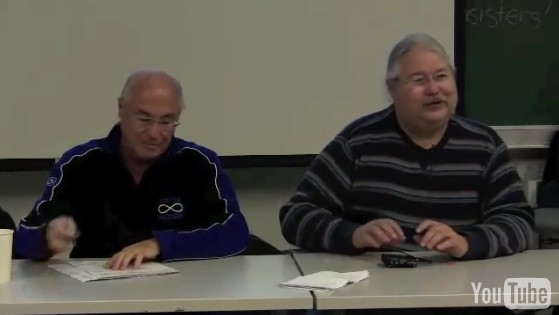
Russell Diabo, a member of the Mohawk Nation at Kahnawake, talks about “Canada’s War on First Nations”. This talk was a part of Indigenous Sovereignty Week 2010 in Ottawa, unceded and unsurrendered Algonquin Territory.
Russell Diabo is a member of the Mohawk Nation at Kahnawake, Quebec. He worked as an Advisor to the Algonquins of Barrier Lake. He was a founding member of the Defenders of the Land Network, also bringing his experience as editor of the First Nations Strategic Bulletin.
In his talk, Russell Diabo explores various aspects of Canada’s war on the Innu, Haudenosaunee, Algonquin, Cree, Dakelh, Miq’maq, Inuit, Metis and other Indigenous Peoples in Canada.
Even though this war has been going on for centuries, it is no longer a conventional war, like the kind we see on television. Rather than battlefields, this “war” is waged from lush offices buildings around the country. And rather than rifles and grenade launchers, Canada’s weapon of choice is nothing more than pen (though they reserve the right to use guns whenever they see fit).
In any event, one thing that hasn’t changed is Canada’s goal in the war. Whether we’re talking about Residential Schools or BC Treaties, that goal has always been to extinguish the Indigenous population legally, culturally, economically, and politically.
To learn more about some of the specific issues that Russell Diabo brings up in his talk, including Harper’s plan to “privatize” reserves and AFN’s recent proposal to remove the Indian Act, spend some time reading the First Nations Strategic Bulletin. Here’s the two lasted editions:
You may also want to watch:

Indigenous Peoples are putting their bodies on the line and it's our responsibility to make sure you know why. That takes time, expertise and resources - and we're up against a constant tide of misinformation and distorted coverage. By supporting IC you're empowering the kind of journalism we need, at the moment we need it most.